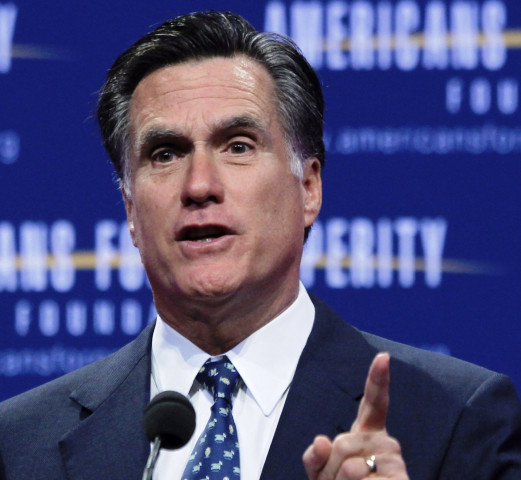Support waning, Romney decides against 2016 bid
Donors who supported him last time refused to commit to his campaign

On a ski lift high above the powdery slopes of Deer Valley, Utah, Mitt Romney made it clear: His quest for the White House, which had dominated nearly a decade of his life, was coming to a close, reported The New York Times on Friday.
In a talk with his eldest son, Tagg, between runs down the mountain on Monday, Mr. Romney, 67, said he had all but decided against a third bid for the White House.
The conversation, according to a person familiar with it, came after days of increasingly gloomy news reached the Romney family.
Donors who supported him last time refused to commit to his campaign. Key operatives were signing up with former Gov. Jeb Bush of Florida. The Republican establishment that lifted Mr. Romney to the nomination in 2012 in the face of scrappy opposition had moved on.
The news on Friday that Mr. Romney would opt out of the race revealed as much about the party in 2015 as it did about the former Massachusetts governor’s weaknesses as a candidate. Republican leaders, especially the party’s wealthiest donors, are in an impatient and determined mood. They are eager to turn to a new face they believe can defeat what they anticipate will be a strong, well-funded Democratic opponent, Hillary Rodham Clinton.
“People were much more excited about Jeb than Mitt,” said Ron Gidwitz, a Chicago financier who helped raise millions for Mr. Romney and allied groups in 2012. “Mitt ran twice before unsuccessfully. He’s a great guy. But winning is everything in this business.”
Mr. Romney’s decision not to run frees up scores of Republican establishment donors and campaign operatives, and sets off an intense battle for their support. A key question, given the early strength demonstrated by Mr. Bush and his network, is whether there is room for a candidate of similar policy views, such as Gov. Chris Christie of New Jersey or Senator Marco Rubio of Florida, to emerge. So far, Mr. Bush has fared well among the party’s moneyed donor class, but its grass-roots activists, crucial to the early nominating states, have yet to coalesce around any candidate in a still evolving field.
Mr. Romney’s departure could also deprive Democrats of what they had hoped: a protracted and damaging confrontation between Mr. Bush and Mr. Romney — and the prospect of facing off again against Mr. Romney, who they believe would be just as vulnerable as he was in 2012.
The campaign to deny Mr. Romney another chance began almost immediately after he mused to donors at a Friday get-together in New York City on Jan. 9 that he was open to the possibility of another run. By that Sunday afternoon, William Oberndorf, a prominent California investor who supported Mr. Romney in both of his previous presidential campaigns, had emailed a group of 52 powerful Republicans, including former Secretary of State George Shultz, the investor Charles Schwab, Gov. Bruce Rauner of Illinois and the Michigan billionaire Betsy DeVos with a blunt message: we need to support someone else.
Mr. Oberndorf wrote: “We are fortunate in Jeb Bush to have an extremely talented and able candidate who, I believe, has a far better prospect of winning a general election than Mitt. Moreover, Mitt has now run twice and has had his chance to be president. It is now time to cede the field to others.”



















COMMENTS
Comments are moderated and generally will be posted if they are on-topic and not abusive.
For more information, please see our Comments FAQ